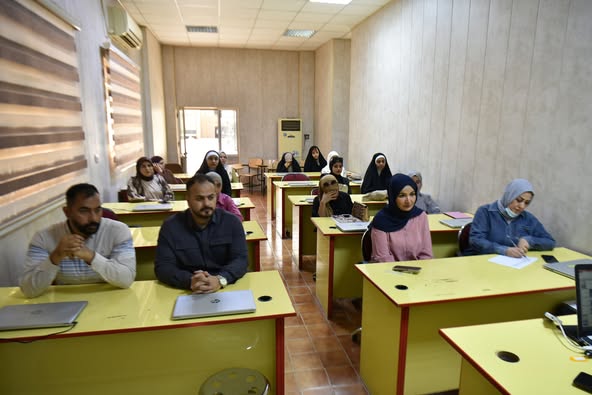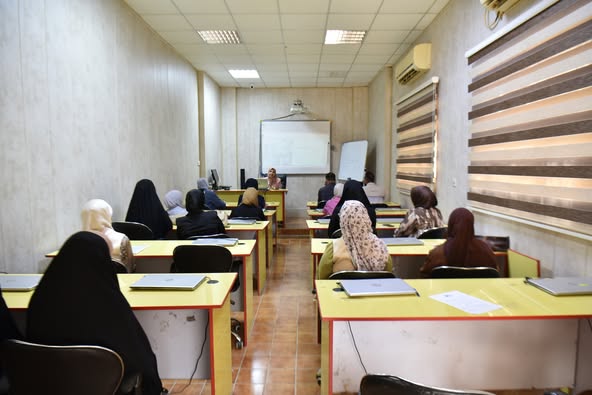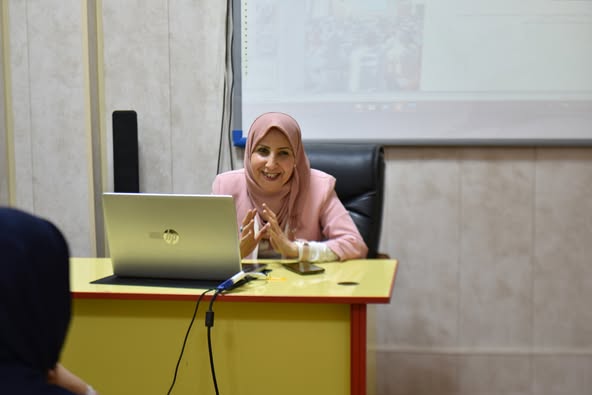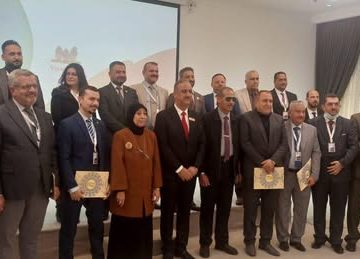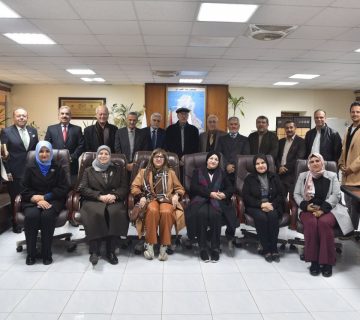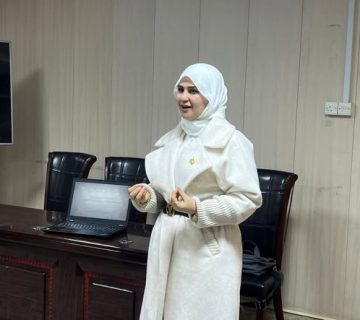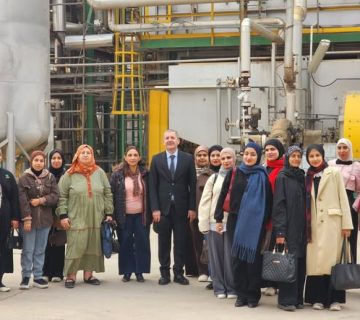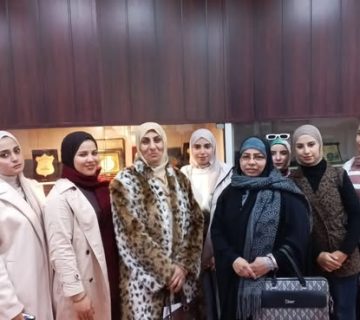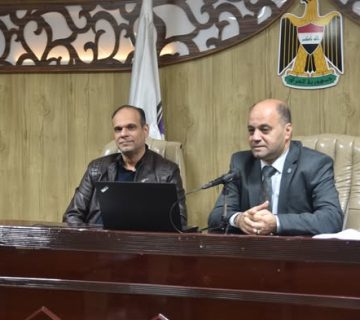Under the patronage of the Dean of the College of Science for Women, Professor Dr. Sameera Naji Khdim, the Rehabilitation and Employment Unit at the College of Science for Women organized a workshop entitled “Enhancing Youth Participation in Decision-Making”. The workshop was presented by the Assistant Dean for Scientific and Student Affairs, Dr. Yusra Abdul Sahib Saif Al-Din, and was attended by several faculty members, staff, and students.
The workshop aimed to shed light on the pivotal role of youth in all societies, recognizing them as a vital segment capable of assuming leadership roles that drive societal progress and development. It focused on preparing young people for decision-making by building their confidence and empowering them with knowledge and skills.
Dr. Yusra began by emphasizing the crucial role that youth play in decision-making processes at local, national, and global levels. She noted that youth are a driving force for change and innovation, due to their energy, creativity, and ability to adapt to contemporary challenges.
She also outlined various methods to empower youth to take on influential roles. These included:
Entrepreneurship, by developing innovative technological or social solutions to address economic and environmental challenges.
Digital platforms, using social media and digital applications to raise awareness and highlight their societal contributions.
Community development and volunteerism, through active participation in initiatives that tackle issues such as poverty, health, and education.
Intergenerational dialogue, to foster mutual understanding between youth and older generations, thereby integrating diverse perspectives in decision-making.
Another significant aspect discussed was the inclusion of youth in addressing global issues such as climate change, which contributes to enhancing their role and developing leadership competencies.
In conclusion, Dr. Yusra stressed that involving youth in decision-making is an investment in the future. Their engagement brings fresh ideas and represents the voice of future generations. The effectiveness of their participation depends on institutional support and the creation of genuine channels for engagement.
